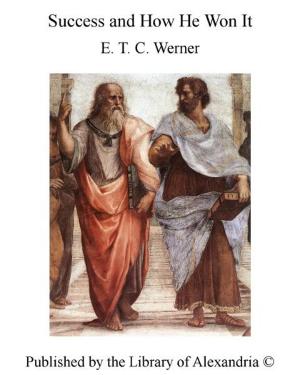The Common Sense of Socialism
Nonfiction, Religion & Spirituality, New Age, History, Fiction & Literature| Author: | John Spargo | ISBN: | 9781465503008 |
| Publisher: | Library of Alexandria | Publication: | March 8, 2015 |
| Imprint: | Language: | English |
| Author: | John Spargo |
| ISBN: | 9781465503008 |
| Publisher: | Library of Alexandria |
| Publication: | March 8, 2015 |
| Imprint: | |
| Language: | English |
Socialism is undoubtedly spreading. It is, therefore, right and expedient that its teachings, its claims, its tendencies, its accusations and promises, should be honestly and seriously examined.—Prof. Flint. My Dear Mr. Edwards: I count it good fortune to receive such letters of inquiry as that which you have written me. You could not easily have conferred greater pleasure upon me than you have by the charming candor and vigor of your letter. It is said that when President Lincoln saw Walt Whitman, “the good, Gray Poet,” for the first time he exclaimed, “Well, he looks like a man!” and in like spirit, when I read your letter I could not help exclaiming, “Well, he writes like a man!” There was no need, Mr. Edwards, for you to apologize for your letter: for its faulty grammar, its lack of “style” and “polish.” I am not insensible to these, being a literary man, but, even at their highest valuation, grammar and literary style are by no means the most important elements of a letter. They are, after all, only like the clothes men wear. A knave or a fool may be dressed in the most perfect manner, while a good man or a sage may be poorly dressed, or even clad in rags. Scoundrels in broadcloth are not uncommon; gentlemen in fustian are sometimes met with. He would be a very unwise man, you will admit, who tried to judge a man by his coat. President Lincoln was uncouth and ill-dressed, but he was a wise man and a gentleman in the highest and best sense of that much misused word. On the Other hand, Mr. Blank, who represents railway interests in the United States Senate, is sleek, polished and well-dressed, but he is neither very wise nor very good. He is a gentleman only in the conventional, false sense of that word
Socialism is undoubtedly spreading. It is, therefore, right and expedient that its teachings, its claims, its tendencies, its accusations and promises, should be honestly and seriously examined.—Prof. Flint. My Dear Mr. Edwards: I count it good fortune to receive such letters of inquiry as that which you have written me. You could not easily have conferred greater pleasure upon me than you have by the charming candor and vigor of your letter. It is said that when President Lincoln saw Walt Whitman, “the good, Gray Poet,” for the first time he exclaimed, “Well, he looks like a man!” and in like spirit, when I read your letter I could not help exclaiming, “Well, he writes like a man!” There was no need, Mr. Edwards, for you to apologize for your letter: for its faulty grammar, its lack of “style” and “polish.” I am not insensible to these, being a literary man, but, even at their highest valuation, grammar and literary style are by no means the most important elements of a letter. They are, after all, only like the clothes men wear. A knave or a fool may be dressed in the most perfect manner, while a good man or a sage may be poorly dressed, or even clad in rags. Scoundrels in broadcloth are not uncommon; gentlemen in fustian are sometimes met with. He would be a very unwise man, you will admit, who tried to judge a man by his coat. President Lincoln was uncouth and ill-dressed, but he was a wise man and a gentleman in the highest and best sense of that much misused word. On the Other hand, Mr. Blank, who represents railway interests in the United States Senate, is sleek, polished and well-dressed, but he is neither very wise nor very good. He is a gentleman only in the conventional, false sense of that word















